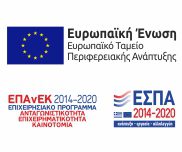Potential cohort studies have constantly stated an inverse association ranging from milk dinner consumption and you can CRC exposure
Colorectal cancer tumors
Colorectal malignant tumors (CRC) is among the most well-known gastrointestinal cancer together with second best lead to off cancers demise in the usa (71). CRC is caused by a mix of genetic and you will environment circumstances, however the degree to which these sort of facts dictate CRC risk when you look at the someone varies extensively. Inside people with familial adenomatous polyposis (FAP) or genetic nonpolyposis colorectal cancers (HNPCC), the main cause of CRC is practically totally hereditary, if you're modifiable lives issues, and additionally weightloss patterns, cigarette smoking, and you may regular activities, greatly influence the risk of sporadic (non-hereditary) CRC.
Experimental studies in cell culture and animal models sitio de citas para gamers gratislink have suggested plausible mechanisms underlying a role for calcium, a major nutrient in dairy products, in preventing CRC (72). In the multicenter European Prospective Investigation into Cancer and Nutrition (EPIC) prospective study of 477,122 individuals, followed for an average of 11 years, 4,513 CRC cases were documented (73). Intakes of milk, cheese, and yogurt, were inversely associated with CRC risk. The highest versus lowest quintile of total dairy intake (?490 g/day vs. <134 g/day) was associated with a 23% lower risk of CRC. Similarly, CRC risk was 25% lower in those in the top versus bottom quintile of calcium intake from dairy food (?839 mg/day vs. <308 mg/day). The 16-year follow-up of 41,403 women (ages 26-46 years at inclusion) from the prospective Nurses' Health Study II (NHS II) documented 2,273 diagnoses of colorectal adenomas (precancerous polyps). The analysis of the prospective cohort found that women with total calcium intake of 1,001-1,250 mg/day had a 76% lower risk of developing advanced adenomas (i.e., adenomas more likely to become malignant) compared to those with intakes equal to and below 500 mg/day (74). In addition, a dose-response analysis using data from eight prospective studies (11,005 CRC cases) estimated that an increase of 300 mg/day in total calcium intake was associated with a 5% reduction in CRC risk (75). Total daily intake of calcium ranged from 333 to 2,229 mg in the examined studies. In addition, the dose-response analysis of six prospective studies (8,839 CRC cases among 920,837 participants) showed 11% lower odds of high-risk adenomas for each 300 mg/day increment in total calcium (75).
Yet not, the brand new meta-study regarding seven randomized, double-blind, placebo-controlled studies discovered no evidence of an aftereffect of calcium supplements (?five hundred milligrams/day) to possess an average age of 45 days to the overall cancer chance and you may CRC chance (76). Likewise, the brand new lso are-study of the Women's Wellness Initiative placebo-regulated trial didn't inform you a reduction in CRC exposure into the postmenopausal ladies formulated that have each other nutritional D (400 IU/day) and you may calcium supplements (step 1,000 mg/day) for eight years (77).



